Affirming determination with strategic technologies
The event marks a new development step in international cooperation on technology, following the Memorandum of Understanding signed in 2024, and affirms Vietnam's commitment to developing the semiconductor industry, artificial intelligence and innovation ecosystem.
In his opening speech, Mr. Vo Xuan Hoai, Deputy Director of the National Innovation Center (NIC), emphasized: "Vietnam is entering an acceleration phase with a series of important policies and decisions of the State to develop science, technology and innovation. The Central Resolution, the system of laws and specialized decrees have created a solid political and legal foundation, allowing Vietnam to have a clear direction in choosing key areas."
Mr. Hoai cited that 3 months ago, the Prime Minister issued a list of strategic technologies, including breakthrough industries such as aerospace, artificial intelligence (AI), semiconductors, new energy and high-speed railways. These are areas associated with the strengths of many of the world's leading technology corporations, including Dassault Systèmes, and are completely consistent with Vietnam's development orientation.
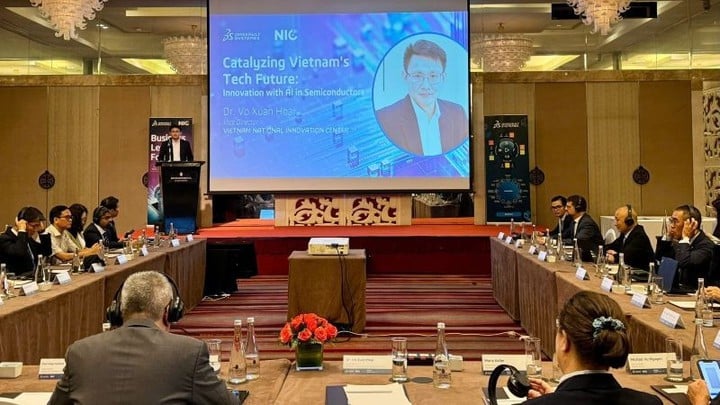
Overview of the forum.
"Today's forum has special significance as it brings together senior leaders of Dassault Systèmes in the Asia- Pacific region, along with many large enterprises and universities. I hope this will be a starting point to enhance exchanges, cooperation, and jointly develop strategic technology industries," Mr. Hoai shared.
NIC is currently focusing on developing artificial intelligence and semiconductors, two important pillars in digital transformation. In just a few days (August 25), the Center will announce a plan to build an innovation network in the fields of quantum, cybersecurity, aerospace and drones. "This is not just a story about technology, but also a story about people, talent and the future of the young generation of Vietnam," Mr. Hoai affirmed.
Mr. Samson Khaou, Executive Vice President of Asia Pacific at Dassault Systèmes, affirmed: "We are honored to cooperate with NIC to integrate Virtual Twin solutions, applying industry best practices and global expertise to support Vietnam's semiconductor development aspirations. Dassault Systèmes is committed to working with NIC to promote the innovation ecosystem and develop digital human resources for the country."
According to him, Dassault Systèmes is now able to simulate most of the semiconductor manufacturing processes from deposition, photolithography, ion implantation to mechanical cleaning and polishing. These simulations are validated through years of experience and global collaboration, creating a solid physical foundation for building accurate predictive models.
Khaou gave the example of 3D ICs and high-bandwidth memory (HBM). Previously, the simulation process was often fragmented, divided into many steps from CAD design, pre-processing, post-processing to HPC system computation, making optimization time-consuming. Thanks to that, engineers can explore the entire design space from the early stages, instead of just testing a limited number of options.
More importantly, Dassault Systèmes has combined simulation with artificial intelligence. “If you change a design parameter or process, the system will immediately give you feedback on the impact on product quality, while all the complexity of building the model, converting formats, and processing the results is automated by AI,” he explains.
However, building an effective AI model requires data, and in the semiconductor industry, data is a highly confidential asset that is difficult to share. The solution is to utilize virtual twins to automatically generate synthetic data for AI training. According to Mr. Khaou, the combination of modeling, simulation and AI will be the lever for Vietnam to shorten the gap and participate more deeply in the global value chain.
France accompanies Vietnam in developing an innovation ecosystem
From a diplomatic perspective, Ms. Marie Keller, Acting Representative of the French Embassy in Vietnam, affirmed that innovation has always been one of the key priorities in the France-Vietnam cooperation policy. She said that organizing this forum is an important milestone, especially in the context of 2025 closing the "France-Vietnam Year of Innovation".
During President Emmanuel Macron’s visit to Vietnam in May, the French Tech event created a big buzz, opening a wave of strong cooperation in the digital technology sector. Ms. Keller highly appreciated Vietnam’s aspirations in the semiconductor sector, demonstrated by the establishment of the Investment Support Fund, the promulgation of the Semiconductor Industry Development Strategy to 2030 and the groundbreaking of the first domestic chip factory.
"Of course, building a semiconductor ecosystem cannot happen overnight. Vietnam still needs to address challenges in training human resources, promoting research and creating a favorable business environment. France is ready to share experiences from its network of 115 enterprises, 3,000 jobs and prestigious research centers such as CEA Tech," said Ms. Keller.
She also emphasized that France is currently implementing a $7.9 billion chip factory project, thereby further recognizing the strategic role of this industry and is ready to expand cooperation with Vietnam "in the spirit of mutual benefit".
Representing domestic enterprises, Viettel AI brings a practical perspective on the digital transformation journey. According to this unit, the three core elements that create the digital strength of enterprises are: data, digital technology (AI, cloud, blockchain, IoT) and digital infrastructure (5G, cloud, data center).
The data center is considered the "heart" of operations, ensuring that data is always safe, available, and exploitable to create new value. However, the Vietnamese market still faces many challenges: infrastructure has not kept up with AI needs, difficulties in safety, compliance, shortage of high-quality engineers, and performance limitations.
The trend of shifting to a hybrid infrastructure model is opening up a feasible solution, helping businesses optimize costs, flexibly expand and take advantage of professional resources from suppliers. Vietnam also has a competitive advantage in construction costs and cheaper electricity compared to many countries in the region.
According to forecasts, by 2030, the size of Vietnam's data center market could reach 1.14 billion USD, with a growth rate of 10.8%/year. Hyperscale projects over 100 MW are being implemented by large corporations such as Viettel, CMC, FPT. This is a signal that the national digital infrastructure is becoming an important launching pad for the digital economy to break through.
Within the framework of the forum, a cooperation signing ceremony also took place between Dassault Systèmes and Viettel AI, affirming the common determination in building a strategic technology ecosystem for Vietnam.
This partnership emphasizes the role of human resource training with the goal of training 50,000 semiconductor engineers by 2030 set by the Vietnamese Government. This is a testament to the long-term vision of developing creative resources, ready to participate deeply in the global value chain, maintaining high-tech growth momentum and gradually making Vietnam an attractive destination for international technology corporations./.
Source: https://mst.gov.vn/viet-nam-tang-toc-hop-tac-quoc-te-trong-doi-moi-sang-tao-va-cong-nghe-chien-luoc-197251019081422047.htm


![[Photo] Prime Minister Pham Minh Chinh received Mr. Yamamoto Ichita, Governor of Gunma Province (Japan)](https://vphoto.vietnam.vn/thumb/1200x675/vietnam/resource/IMAGE/2025/10/21/1761032833411_dsc-8867-jpg.webp)
![[Photo] National Assembly Chairman Tran Thanh Man holds talks with Hungarian National Assembly Chairman Kover Laszlo](https://vphoto.vietnam.vn/thumb/1200x675/vietnam/resource/IMAGE/2025/10/20/1760952711347_ndo_br_bnd-1603-jpg.webp)
![[Photo] Prime Minister Pham Minh Chinh meets with Speaker of the Hungarian National Assembly Kover Laszlo](https://vphoto.vietnam.vn/thumb/1200x675/vietnam/resource/IMAGE/2025/10/20/1760970413415_dsc-8111-jpg.webp)





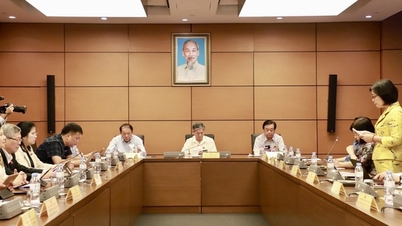


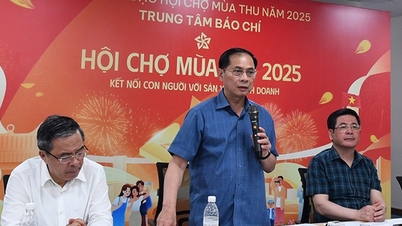
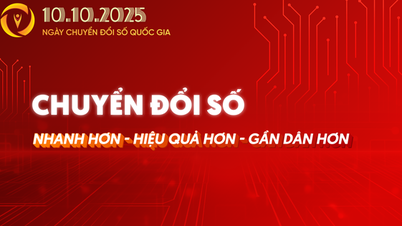




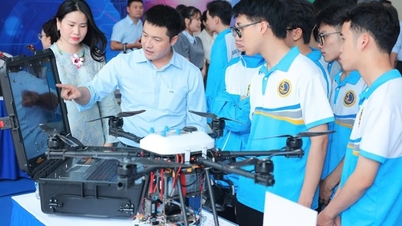
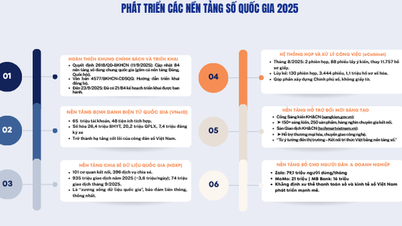
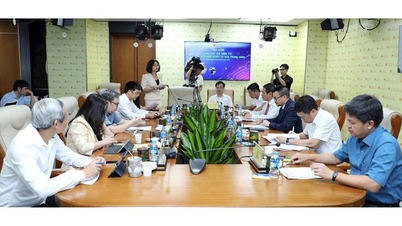
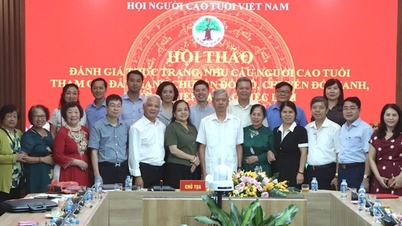










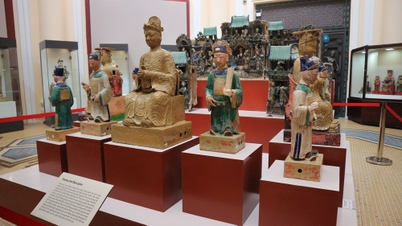




























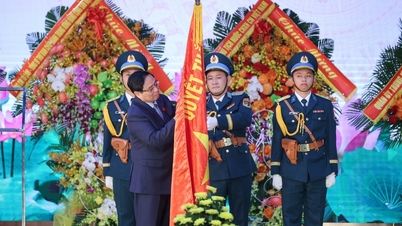









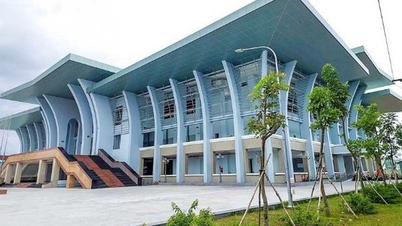
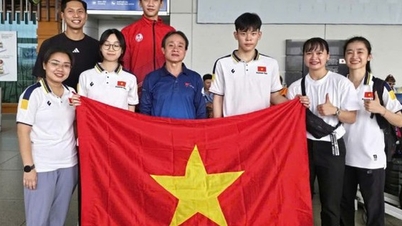

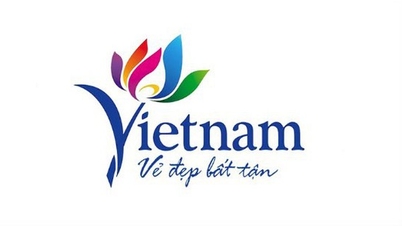
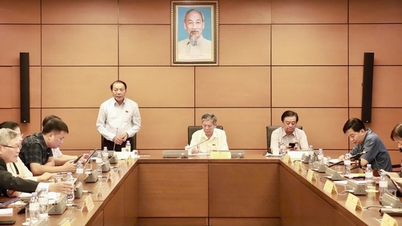


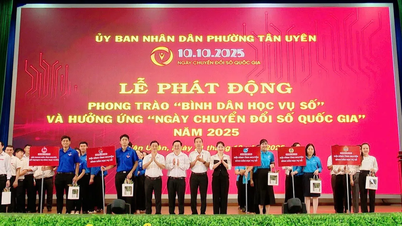
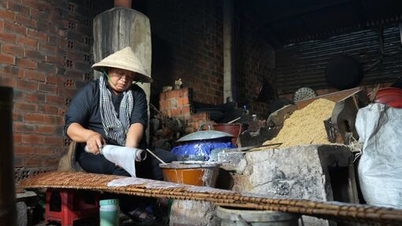



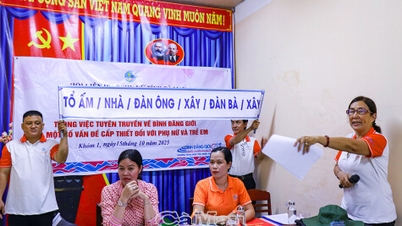

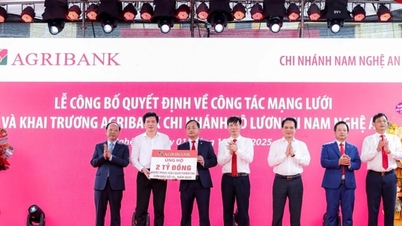













Comment (0)